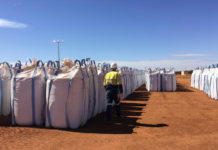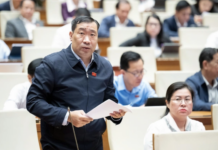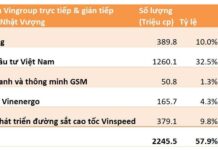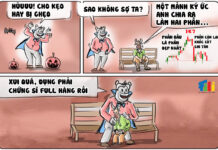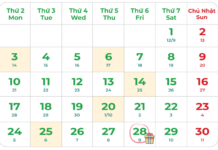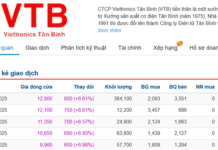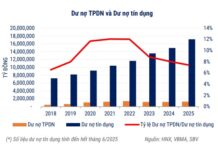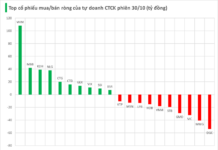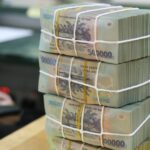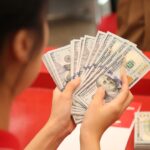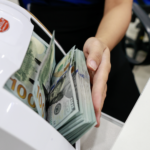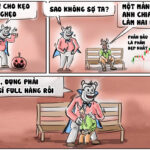USD Black Market Rates Rise While Bank Rates Cool Down
This morning (October 27), the State Bank of Vietnam set the central exchange rate at VND 25,097 per USD, a decrease of VND 1 compared to yesterday. Within the ±5% trading band, the ceiling rate is VND 26,351 per USD, and the floor rate is VND 23,842 per USD.
The reference exchange rate at the State Bank of Vietnam’s trading center is VND 23,893 – 26,301 per USD for buying and selling, respectively.
Commercial banks also saw a significant drop in rates this morning. Notably, Vietcombank, the largest foreign currency trader in the system, listed the USD rate at VND 26,111 – 26,351 per USD (buying – selling), a decrease of VND 41 for buying and VND 1 for selling compared to yesterday.
Meanwhile, the USD rate on the black market hovers around VND 27,517 – 27,637 per USD for buying and selling. This creates a gap of over VND 1,000 per USD between bank and black market rates.
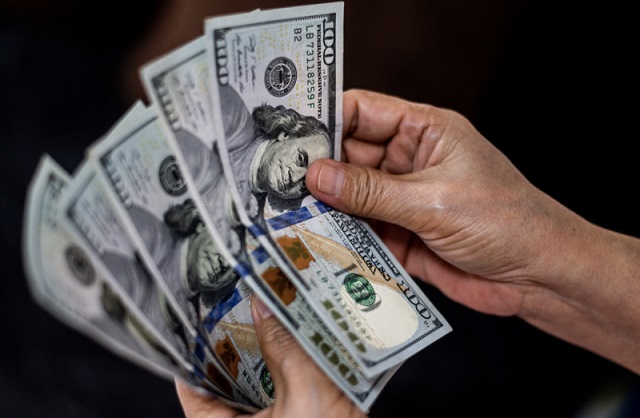 Is Psychology Driving the Surge in Black Market USD Rates?
|
In response to recent USD rate fluctuations, the State Bank of Vietnam has sent a document to the Ministry of Public Security, Ministry of Industry and Trade, and Government Inspectorate, requesting enhanced coordination in managing foreign exchange market activities to ensure banking system safety and macroeconomic stability.
The State Bank of Vietnam has proactively adjusted the central exchange rate and mandated that credit institutions strictly adhere to legal regulations regarding foreign exchange services.
On October 22, the State Bank of Vietnam announced a plan to sell foreign currency through 180-day cancellable forward contracts—the third time in nearly two months that the bank has used this intervention tool.
Transactions are conducted with credit institutions holding negative foreign currency positions at a selling rate of VND 26,550 per USD. The maximum amount of foreign currency sold to each bank per transaction is equivalent to what is needed to balance its foreign currency position.
Mr. Nguyễn Đức Thắng, owner of an electrical component import business, shared, “Although black market USD rates have surged, our company purchases USD from banks, so we’re not heavily impacted. While bank USD rates have risen compared to last year, increasing output costs, it’s still within our planned budget.”
Black Market Rates Unlikely to Significantly Impact Official Market
In an interview, Mr. Nguyễn Đức Độ, Vice Director of the Institute of Economics and Finance at the Academy of Finance, analyzed that most foreign currency transactions for imports and exports are conducted through the banking system. Therefore, black market rates have a very limited impact on the official market.
Mr. Độ explained that for businesses with import contracts, purchasing USD from banks is smooth and compliant with regulations. “Rising black market rates primarily reflect market sentiment rather than directly affecting international trade. The scale of the black market is small and cannot compare to official foreign exchange transactions,” he said.
According to the expert, the recent gap between official and black market rates may be linked to short-term factors, including gold price fluctuations or informal trading demands. “Rising gold prices may increase USD holding demand in the informal sector, but this impact is psychological,” he analyzed. He added that commenting deeply on the black market is challenging due to its lack of transparency and official statistics.
However, Mr. Độ emphasized, “Fundamentally, the official market determines exchange rates and accurately reflects foreign currency supply and demand in the economy.”
The expert also assessed that the State Bank of Vietnam has been managing exchange rates flexibly and effectively. When rates show signs of rapid increase, the regulator promptly intervenes by selling foreign currency, stabilizing sentiment and preventing significant fluctuations. Exchange rates among commercial banks remain stable. Despite global market volatility, Vietnam has weathered the most intense pressure.
According to Mr. Độ, factors previously pressuring exchange rates—such as the U.S. Federal Reserve maintaining high interest rates, U.S.-China trade tensions, and export concerns—have all eased. “The greatest pressure on exchange rates is likely past. Until year-end, rate fluctuations will probably not be too severe, and the market will gradually stabilize,” he predicted. Vietnam’s foreign exchange market has maintained relative stability, with short-term black market fluctuations being mostly temporary.
“The official market is key. Stable bank rates mean a stable economy,” Mr. Độ concluded.
Ngọc Mai
– 14:32 27/10/2025
How is the Free USD Rate Faring Post-State Bank’s Proposal for Inter-Ministerial Coordination?
The free USD exchange rate has stabilized following the State Bank’s request to the Ministry of Public Security to inspect, monitor, and regulate foreign exchange activities.
Orchestrating Forex Market Operations Management
On October 24, 2025, the State Bank of Vietnam (SBV) issued a directive to the Ministry of Public Security, the Ministry of Industry and Trade, and the Government Inspectorate, outlining a collaborative effort to regulate foreign exchange market activities.



